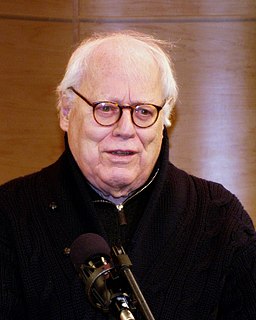A Quote by James Madison
[T]he delegation of the government, in [a republic], to a small number of citizens elected by the rest . . . [is] to refine and enlarge the public views by passing them through the medium of a chosen body of citizens, whose wisdom may best discern the true interest of their country and whose patriotism and love of justice will be least likely to sacrifice it to temporary or partial considerations.
Related Quotes
If patriotism were defined, not as blind obedience to government, not as submissive worship to flags and anthems, but rather as love of one's country, one's fellow citizens (all over the world), as loyalty to the principles of justice and democracy, then patriotism would require us to disobey our government, when it violated those principles.
Of one man in especial, beyond anyone else, the citizens of a republic should beware, and that is of the man who appeals to them to support him on the ground that he is hostile to other citizens of the republic, that he will secure for those who elect him, in one shape or another, profit at the expense of other citizens of the republic. It makes no difference whether he appeals to class hatred or class interest, to religious or anti-religious prejudice. The man who makes such an appeal should always be presumed to make it for the sake of furthering his own interest.
There is no part of the administration of government that requires extensive information and a thorough knowledge of the principles of political economy, so much as the business of taxation. The man who understands those principles best will be least likely to resort to oppressive expedients, or sacrifice any particular class of citizens to the procurement of revenue. It might be demonstrated that the most productive system of finance will always be the least burdensome.
Jefferson, though the secret vote was still unknown at the time had at least a foreboding of how dangerous it might be to allow the people to share a public power without providing them at the same time with more public space than the ballot box and with more opportunity to make their voices heard in public than on election day. What he perceived to be the mortal danger to the republic was that the Constitution had given all power to the citizens, without giving them the opportunity of being citizens and of acting as citizens.
Never for a moment believe that the great body of the citizens of any State or States can deliberately intend to do wrong. They may, under the influence of temporary excitement or misguided opinions, commit mistakes; they may be misled for a time by the suggestions of self-interest; but in a community so enlightened and patriotic as the people of the United States argument will soon make them sensible of their errors, and when convinced they will be ready to repair them.
For what is meant by saying that a government ought to educate the people? Why should they be educated? What is the education for? Clearly, to fit the people for social life - to make them good citizens. And who is to say what are good citizens? The government: there is no other judge. And who is to say how these good citizens may be made? The government: there is no other judge. Hence the proposition is convertible into this - a government ought to mold children into good citizens, using its own discretion in settling what a good citizen is and how the child may be molded into one.
This is crossing the Rubicon, after which there will be no more sovereign states in Europe with fully-fledged governments and parliaments which represent legitimate interests of their citizens, but only one State will remain. Basic things will be decided by a remote 'federal government' in Brussels and, for example, Czech citizens will be only a tiny particle whose voice and influence will be almost zero. ... We are against a European superstate.
An enlightened citizenry is indispensable for the proper functioning of a republic. Self-government is not possible unless the citizens are educated sufficiently to enable them to exercise oversight. It is therefore imperative that the nation see to it that a suitable education be provided for all its citizens.
Wherever the title of streets and parks may rest, they have immemorially been held in trust for the use of the public and, time out of mind, have been used for purposes of assembly... and discussing public question. Such use of the streets and public places has, from ancient times, been a part of the privileges, immunities, rights, liberties of citizens. The privilege of a citizen of the United States to use the streets and parks for communication of views on national questions may be regulated in the interest of all... but it must not, in the guise of regulation, be abridged or denied.
But there is nothing idealized or romantic about the difference between a society whose arrangements roughly serve all its citizens (something otherwise known as social justice) and one whose institutions have been converted into a stupendous fraud. That can be the difference between democracy and plutocracy.






























